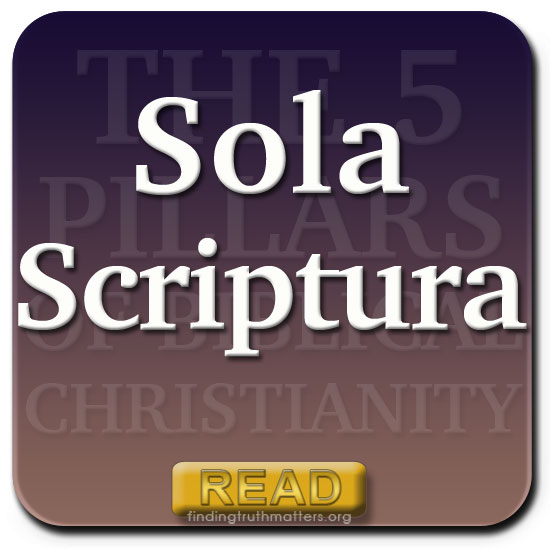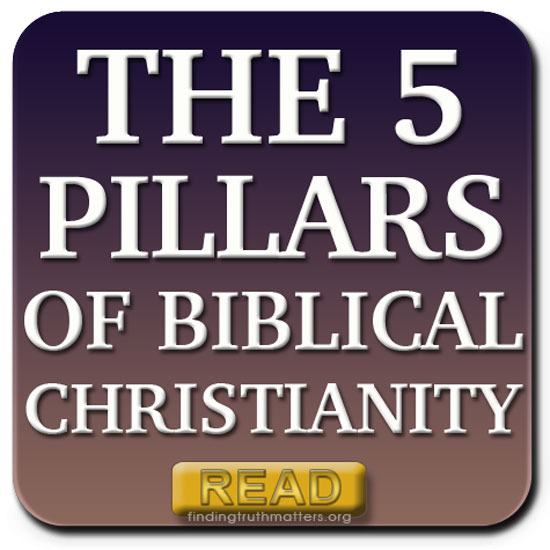
by Andrew Corbett | Aug 28, 2018 | Theology
Biblical Christianity commences with the authority of Scripture. Some might say that it commences with Christ. But without the revelation of Scripture we wouldn’t know that! Against the backdrop of a Papal Church usurping authority to lord it over those who would follow Christ, the Reformers protested that such usurping was contrary to what the Scriptures permitted. When confronted with the option of obeying God’s Word or the contradictory commands of men, the early apostles said-
But Peter and the apostles answered, “We must obey God rather than men.”
Acts 5:29
William Tyndale was one of the first reformers to defy the Papal church leadership and teach that the Bible was a higher authority than the Pope. For this stand he paid a terrible price (being burned alive at the stake). Not only did he teach this doctrine of Sola Scriptura he trained lay preachers (derogatively referred to as “Lollards” ’empty heads’) to preach it across England. He then worked on translating the Scriptures into the common language of the people and was able to do something that Wyclif over a hundred years earlier was unable to do: he published his English Bible by means of the newly invented printing press. Tyndale died to make the English Bible available to the Spiritually hungry. I wonder what mixed emotions he would feel today if he could see the number of Bibles in the homes of Christians today and how little they were actually read! (Research shows that only 2% of Christians have read the entire Bible.)

by Andrew Corbett | Aug 22, 2018 | Theology
“Christ Alone!” The cry of the Reformers was that salvation was revealed in the Scriptures alone (Sola Scriptura) which is based on the work of Christ alone.
…that same veil remains unlifted, because only through Christ is it taken away.”
Second Corinthians 3:14
When we say ‘Christ alone’, we are emphatically stating that Scripture reveals salvation in and through no one other than Christ.

by Andrew Corbett | Aug 20, 2018 | Theology
When the Reformers were protesting the corruption of the then State Church, their pursuit was to return (‘reform’) the Church to something closer to the Biblical prescription. Luther had protested the Roman Catholic practice indulgences, and Catholic Church’s sacerdotal practices such as, Confession, Penance, Transubstantiation. Calvin had systematised Biblical Christianity into four categories: God the Creator, God the Redeemer, The Grace of God, The Holy Catholic (‘universal’) Church, in his four volume series, The Institutes of The Christian Religion. In what might be a summary of these Protestant works, the “Five Solas” were developed as brief and easy-to-remember statements of what the Bible taught about God and Salvation.

by Andrew Corbett | Aug 18, 2018 | Ethics
Is there such a thing as a “Just War”? Can military conflict be thought of as advancing the Cause of Christ? Should Christians serve in the Armed Forces?…
Former Whitehouse Deputy Secretary of State (and Christian), Richard Armitage, has described the “Coalition of the Willing” (including the armed forces of the USA, UK, and Australia) as doing the “Lord’s work” in their military campaign in Iraq. But does God really sanction war? Is there really ever such a thing as a “Just War”?

by Andrew Corbett | Jul 28, 2018 | Devotions
When you’re feeling particularly weak and vulnerable, it doesn’t ordinarily help to have someone tell you to just get over it or snap out of it! But on the surface of it, this most unhelpful counsel is precisely what the Bible seems to offer when it instructs us to be strong in the Lord.
¶ Finally, be strong in the Lord and in the strength of his might.
Ephesians 6:10
I think Paul’s epistle to the Ephesians is perhaps one of the most profound pieces of New Testament literature. No other church in New Testament times draws as much attention as the Ephesian church. While it is often a dangerous thing for a reader to confuse “to” and “for” regarding the intended audiences for a Biblical book (modern readers often naively claim that a particular Biblical book was written to them), there can no doubt that the great apostle intended for this Epistle to be read by an audience much broader than the addressed recipients. We know this because we have found ancient manuscript evidence for this Epistle actually being a type of ‘circular’ epistle (it’s contents would have also been addressed to the other churches in the region as well). Thus, we can be confident that while this epistle was not written to us it was most certainly written for us.





